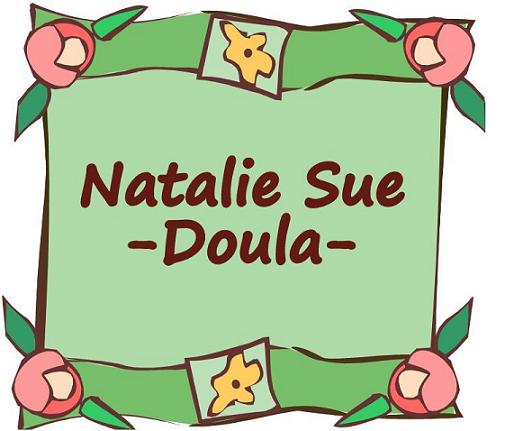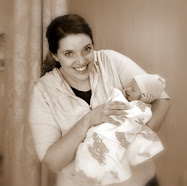I got a call the other day. It was an enquiry about my antenatal sessions. It's always exciting when someone tells me that they are pregnant and that they want some information about the journey ahead.
We talked about the practical stuff, where we would meet, what I would cover and then WHAM! Out of nowhere she told me "I don't need to know about the birth bit. I'm having an epidural".
And like that I was speechless. Doesn't happen often I can tell you. But I confess to feeling confused. Why would the fact that a woman would want an epidural mean that she wouldn't need to know about birth? I mean am I missingsomething here? Does having an epidural mean that you hand your body over and "you gets what you gets"?
I didn't try to persuade her of anything, I simply asked her to email me her details and requirements and that we would speak again if she wanted to go ahead. Forgive the natural instinct in me to plan a hundred different ways to explain to her why she might need to know about giving birth and why an epidural shouldn't be her default setting. My tongue was firmly bitten and I knew I would give her the information that she asked for and be prepared to talk about birth in her entirety. Sadly, to date, she has not emailed or called again. I'm reasonably sure that my palpable shock hadn't reached through the phone wires.
What have we done that women are so afraid of birth that they don't want to talk about it? Is the prospect of a drug free birth that terrible?
I was talking to one of the mums at school. She has two children and is thinking of having her third next year (or at least trying for the third for next year). Naturally (well you birth junkies will know what I mean) I asked her how her first two births were. The first was a twelve hour labour that seemed to stall in the middle. She arrived at hospital and was 5cm dilated. She was still at 5cm several hours later. She was exhausted and had an epidural. She relaxed, her body opened up fast. They told her to push but she couldn't feel her body and didn't know what to do or how to do it. When she was told by the doctor (after fifty mins of pushing) that she had ten minutes to get the baby out or she was having a caesarean, she pushed and her daughter flew out. For her second birth she stayed home longer but when she got to hospital and they told her it would be hours, she opted for an epidural again. The baby's heart rate plummeted and he went into distress. Again she pushed her baby out. This labour had also lasted twelve hours. Another of the school mums was walking with us and said, "I hope you got all the drugs!"
There are a fair few default settings that puzzle me. To give birth you need an epidural. To birth twins you will not go to term and you will need a caesarean and NICU. To birth a breech baby you will need a caesarean. You cannot have a home birth after a caesarean. I do not say that having these things are wrong. I am just puzzled that they are the default setting.
The information is out there. There are antenatal classes, blogs, facebook pages. I tell my ladies not to google. I think that too much information is a bad thing, but is ignorance bliss?
We talked about the practical stuff, where we would meet, what I would cover and then WHAM! Out of nowhere she told me "I don't need to know about the birth bit. I'm having an epidural".
And like that I was speechless. Doesn't happen often I can tell you. But I confess to feeling confused. Why would the fact that a woman would want an epidural mean that she wouldn't need to know about birth? I mean am I missingsomething here? Does having an epidural mean that you hand your body over and "you gets what you gets"?
I didn't try to persuade her of anything, I simply asked her to email me her details and requirements and that we would speak again if she wanted to go ahead. Forgive the natural instinct in me to plan a hundred different ways to explain to her why she might need to know about giving birth and why an epidural shouldn't be her default setting. My tongue was firmly bitten and I knew I would give her the information that she asked for and be prepared to talk about birth in her entirety. Sadly, to date, she has not emailed or called again. I'm reasonably sure that my palpable shock hadn't reached through the phone wires.
What have we done that women are so afraid of birth that they don't want to talk about it? Is the prospect of a drug free birth that terrible?
I was talking to one of the mums at school. She has two children and is thinking of having her third next year (or at least trying for the third for next year). Naturally (well you birth junkies will know what I mean) I asked her how her first two births were. The first was a twelve hour labour that seemed to stall in the middle. She arrived at hospital and was 5cm dilated. She was still at 5cm several hours later. She was exhausted and had an epidural. She relaxed, her body opened up fast. They told her to push but she couldn't feel her body and didn't know what to do or how to do it. When she was told by the doctor (after fifty mins of pushing) that she had ten minutes to get the baby out or she was having a caesarean, she pushed and her daughter flew out. For her second birth she stayed home longer but when she got to hospital and they told her it would be hours, she opted for an epidural again. The baby's heart rate plummeted and he went into distress. Again she pushed her baby out. This labour had also lasted twelve hours. Another of the school mums was walking with us and said, "I hope you got all the drugs!"
There are a fair few default settings that puzzle me. To give birth you need an epidural. To birth twins you will not go to term and you will need a caesarean and NICU. To birth a breech baby you will need a caesarean. You cannot have a home birth after a caesarean. I do not say that having these things are wrong. I am just puzzled that they are the default setting.
The information is out there. There are antenatal classes, blogs, facebook pages. I tell my ladies not to google. I think that too much information is a bad thing, but is ignorance bliss?


